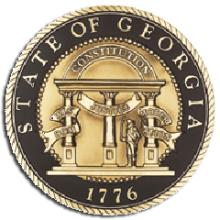Georgia Committee's Report Affirms The Role of Community Networks
To improve rural Internet access, the Georgia Joint House and Senate Study Committee on High Speed Broadband Communications Access for All Georgians recommends that Georgia enable municipal networks and empower rural electric cooperatives.
The committee recently released their report on potential solutions for the lack of rural connectivity. They held six public meetings over the course of four months in 2016, consulting with stakeholders and concerned citizens.
Support of Local Government Networks
Specifically, the report recommended that the Georgia legislature:
“Reaffirm the state’s approval of competitive telecommunication markets by continuing to permit locally-owned and operated government broadband services”
In the economic development section of the report, they detailed the positive role of community networks and the challenges in finding financing.
The report pointed to the success of two community networks, Community Network Services (CNS) and ElbertonNet. ElbertonNet is the fifteen-year-old community network of Elberton, Georgia. The report praised the community network’s “tremendous public feedback” and “exceptional customer service.”






